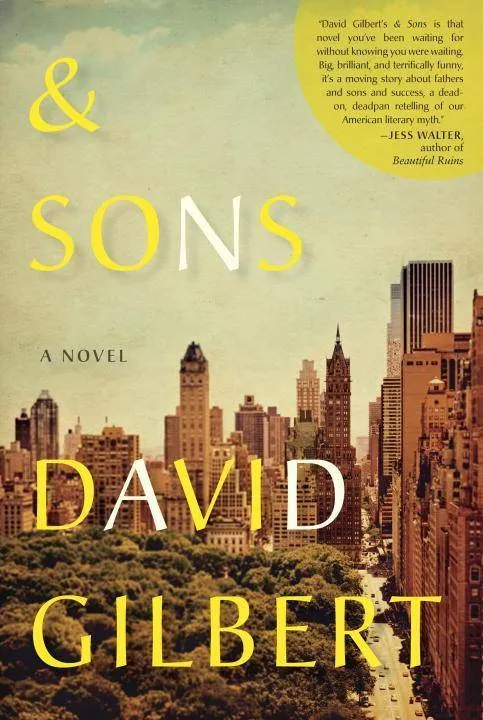
Riot Round-Up: The Best Books We Read in July
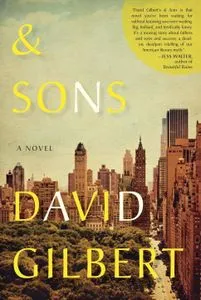 & Sons by David Gilbert
I am super skeptical of book blurbs, but when John Irving says, “the writing is gorgeous – not only the prose but the power of David Gilbert’s observations,” you can’t get me a copy fast enough. This book is about the relationships between fathers and sons and how those relationships define generations…which is not something you get too often from the male perspective. It’s complex, touching, funny, and really damn smart. Reclusive author A. N. Dyer gives a eulogy at his childhood best friend’s funeral and realizes he has a lot of years to make up for with his sons. Told from the perspective of Philip Topping, the childhood best friend’s son, Dyer must make amends with Richard, Jamie, and Andy while the sons examine their own lives.
– Emily Gatlin
& Sons by David Gilbert
I am super skeptical of book blurbs, but when John Irving says, “the writing is gorgeous – not only the prose but the power of David Gilbert’s observations,” you can’t get me a copy fast enough. This book is about the relationships between fathers and sons and how those relationships define generations…which is not something you get too often from the male perspective. It’s complex, touching, funny, and really damn smart. Reclusive author A. N. Dyer gives a eulogy at his childhood best friend’s funeral and realizes he has a lot of years to make up for with his sons. Told from the perspective of Philip Topping, the childhood best friend’s son, Dyer must make amends with Richard, Jamie, and Andy while the sons examine their own lives.
– Emily Gatlin
 Battleborn by Claire Vaye Watkins
This collection of short stories is so impressive, so breathtaking, that I hardly feel up to the task of describing it. But to keep quiet about them would be a worse crime, so. A young woman who shares the author’s name (I love it when writers play with this blurring of memoir and fiction) occupies a desert boarding house with a fellow tenant who could be her half-sister, conceived during her father’s days as a member of the Manson Family. Two girls take a night off from their jobs at a pizza parlor for a quick trip to Las Vegas, where they meet a group of bad boys who do what bad boys do and change their lives forever. A middle-aged gay man working as a madam in one of Nevada’s legal brothels longs for a human touch and lusts after a European tourist who turned up after his friend allegedly got lost hiking. A new mother struggles with grief for her old life and an inability to connect with her child, her husband, and her old friends. This is devastating stuff. And so it goes.
Claire Vaye Watkins’ prose is elegant and her economy of language remarkable. These stories are as spare and beautifully austere as the landscape of the American Southwest where they are set, the same landscape that shapes and hardens the characters and refines them down to their fundamental elements, working them until they are all sinewy muscle and steely resolve. This is a stunning debut from an important young writer, and if it is a promise of what’s to come in the future of American fiction, we are in very good hands indeed.
-Rebecca Joines Schinsky
Battleborn by Claire Vaye Watkins
This collection of short stories is so impressive, so breathtaking, that I hardly feel up to the task of describing it. But to keep quiet about them would be a worse crime, so. A young woman who shares the author’s name (I love it when writers play with this blurring of memoir and fiction) occupies a desert boarding house with a fellow tenant who could be her half-sister, conceived during her father’s days as a member of the Manson Family. Two girls take a night off from their jobs at a pizza parlor for a quick trip to Las Vegas, where they meet a group of bad boys who do what bad boys do and change their lives forever. A middle-aged gay man working as a madam in one of Nevada’s legal brothels longs for a human touch and lusts after a European tourist who turned up after his friend allegedly got lost hiking. A new mother struggles with grief for her old life and an inability to connect with her child, her husband, and her old friends. This is devastating stuff. And so it goes.
Claire Vaye Watkins’ prose is elegant and her economy of language remarkable. These stories are as spare and beautifully austere as the landscape of the American Southwest where they are set, the same landscape that shapes and hardens the characters and refines them down to their fundamental elements, working them until they are all sinewy muscle and steely resolve. This is a stunning debut from an important young writer, and if it is a promise of what’s to come in the future of American fiction, we are in very good hands indeed.
-Rebecca Joines Schinsky
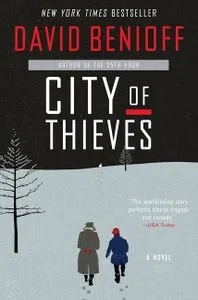 City of Thieves by David Benioff
If you like Russian humor, eggs, war stories, Hellboy, and Game of Thrones, and you’ve never listened to an audiobook before, you should probably lose your audio virginity to City of Thieves by David Benioff, read by Ron Flipping Perlman. It’s a perfect book read by the perfect narrator. Lev and his unlikely friend Kolya are sent on a madcap quest for a dozen eggs through Nazi enemy lines smack dab in the middle of WWII’s Russian invasion. It’s a buddy comedy, love story, war epic, and Russian literary history all rolled up into one. Benioff, who is the co-creator of Game of Thrones on HBO, perfects the ratio of pathos, comedy, dialogue, action, and gore. His screenwriting background makes City of Thieves even better read aloud, and Ron Perlman, the actor behind Hellboy, is the perfect guy for the job. I can’t put into words how much I loved this.
–Rachel Smalter Hall
City of Thieves by David Benioff
If you like Russian humor, eggs, war stories, Hellboy, and Game of Thrones, and you’ve never listened to an audiobook before, you should probably lose your audio virginity to City of Thieves by David Benioff, read by Ron Flipping Perlman. It’s a perfect book read by the perfect narrator. Lev and his unlikely friend Kolya are sent on a madcap quest for a dozen eggs through Nazi enemy lines smack dab in the middle of WWII’s Russian invasion. It’s a buddy comedy, love story, war epic, and Russian literary history all rolled up into one. Benioff, who is the co-creator of Game of Thrones on HBO, perfects the ratio of pathos, comedy, dialogue, action, and gore. His screenwriting background makes City of Thieves even better read aloud, and Ron Perlman, the actor behind Hellboy, is the perfect guy for the job. I can’t put into words how much I loved this.
–Rachel Smalter Hall
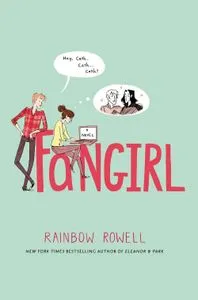 Fangirl by Rainbow Rowell (St. Martin’s Griffin, September 10)
Full disclosure: I also picked Eleanor and Park as one of my favorite books of the month. But, I mean, that was before Fangirl. I am Fangirl. You are Fangirl. We are all Fangirl. The story centers around the quiet twin, Cath, and her first year of college. She’s not so well known in the real world, not like her party-ready sister Wren, but she is a huge deal online. Particularly in the Simon Snow fandom, where her fanfiction is read by thousands of people all over the world. To say Cath is a Simon Snow fan is incorrect. Cath is one of the Simon Snow fans. And who cares about the real world anyway? Wren doesn’t want to be roommates? Fine. Cath’s brash roommate always has her weird (and weirdly cute) friend Levi over? That can be avoided. Her fiction writing professor wants her to write original fiction? Please. She has an epic Simon Snow story to finish first. Rainbow Rowell writes another side of the collegiate experience. I can’t imagine how comforted I would have been by this book had it come out when I was a teenager. This is a story more relevant than ever (I’m looking at you, hordes of Tumblr teens), when fandom is running rampant. And it is so much more than a funny story about a nerd in college. One of the best parts is the family drama. Cath’s father is flawed and believable, and her absentee mother is heartbreaking. I have to stop talking before I tell you everything, but go read this book when it comes out in September. Do it.
-Preeti Chhibber
Fangirl by Rainbow Rowell (St. Martin’s Griffin, September 10)
Full disclosure: I also picked Eleanor and Park as one of my favorite books of the month. But, I mean, that was before Fangirl. I am Fangirl. You are Fangirl. We are all Fangirl. The story centers around the quiet twin, Cath, and her first year of college. She’s not so well known in the real world, not like her party-ready sister Wren, but she is a huge deal online. Particularly in the Simon Snow fandom, where her fanfiction is read by thousands of people all over the world. To say Cath is a Simon Snow fan is incorrect. Cath is one of the Simon Snow fans. And who cares about the real world anyway? Wren doesn’t want to be roommates? Fine. Cath’s brash roommate always has her weird (and weirdly cute) friend Levi over? That can be avoided. Her fiction writing professor wants her to write original fiction? Please. She has an epic Simon Snow story to finish first. Rainbow Rowell writes another side of the collegiate experience. I can’t imagine how comforted I would have been by this book had it come out when I was a teenager. This is a story more relevant than ever (I’m looking at you, hordes of Tumblr teens), when fandom is running rampant. And it is so much more than a funny story about a nerd in college. One of the best parts is the family drama. Cath’s father is flawed and believable, and her absentee mother is heartbreaking. I have to stop talking before I tell you everything, but go read this book when it comes out in September. Do it.
-Preeti Chhibber
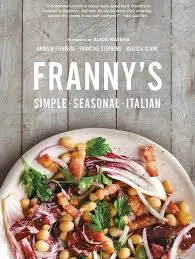 Franny’s: Simple, Seasonal, Italian by Andrew Feinberg, Francine Stephens and Melissa Clark
Franny’s: Simple, Seasonal, Italian by Andrew Feinberg, Francine Stephens and Melissa Clark
 Give Us a Kiss by Daniel Woodrell
Give Us a Kiss by Daniel Woodrell
Any time I read a Woodrell book it is very likely to be my favorite book of that month, and Give Us a Kiss was no exception. As with most of his books, Woodrell pulls us right in with the opening line. “I had a family errand to run, that’s all, but I decided to take a pistol.” The book then tells us about the trouble Doyle Redmond gets into as he goes in search of his older brother Smoke, hiding out in the Missouri Ozarks to evade the law. It involves guns, certainly, but also hillbilly love and past-life experiences.
Give Us a Kiss is different from Woodrell’s recent novels in that there is less focus on the pretty prose (though the prose is all sorts of good) and more focus on moving the story along. We are still in familiar territory, with unsavory characters in the Missouri Ozarks up to no good, and we just can’t help but love all the misfits Woodrell drags onto his pages. There is a point in the book where Redmond describes how he sees himself as a writer, and this so mirrors how I imagine Woodrell sees himself as a writer that I felt a pinch of vertigo for a moment, like I was having an out-of-book experience:“I always get called a crime writer, though to me they are slice-of-life dramas. They remind me of my family and friends, actually. I hate to think I’ve led a ‘genre‘ life, but that seems to be the category I’m boxed in.”
Loved it. Loved it, loved it, loved it.
-Johann Thorsson
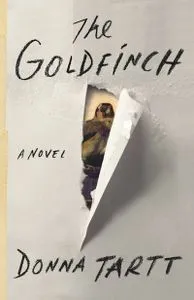 The Goldfinch by Donna Tartt (Little Brown and Company, October 22)
The Goldfinch by Donna Tartt (Little Brown and Company, October 22)
First off: I refuse to get involved in a “Is it better than The Secret History?” discussion, because it’s a completely different book, and also because I have read The Secret History (Tartt’s first book) once a year since it came out, so it isn’t fair to compare a book I’ve just read against one I have scanned through my brain twenty-one times. It’s ingrained in my membranes. So, that said, let’s talk about The Goldfinch. The novel is about a teen boy named Theo who lives in NYC with his single mother. When his mother is killed in an accident, and with his father AWOL, Theo is shuffled off to various places to be looked after. And at the center of the book is a famous Dutch painting called The Goldfinch. There’s gangsters, and antiques dealers, and Las Vegas, and truckloads of substances, and holy cats is it wonderful. It is a wildly ambitious, sprawling, gorgeous novel that is deeply flawed in places (much like The Secret History) but still succeeds in a big way because it has so much effing heart. It made me sob like a wild woman. I’m madly in love with it. I didn’t want it to end. Completely worth the twelve year wait. TEAM TARTT!
-Liberty Hardy
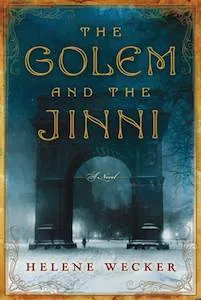 The Golem and The Jinni by Helene Wecker
The Golem and The Jinni by Helene Wecker
To most people, Ahmad and Chava look like your average new-to-America immigrants struggling to find a place in their new country, but they are anything but average. Ahmad is a Jinni made of fire and recently released from centuries of captivity in a copper bottle. Chava is made of clay, a golem fashioned by a no-good Rabbi for a wealthy customer who dies while Chava and he are on their way to America. In bustling, turn-of-the-century New York these two magical creatures happen to bump into each other late one night (neither creature needs to sleep) and instantly notice the other’s “otherness.” They forge a strange and alluring sort of relationship, bonding over finally being able to be their “true” selves. Of course, things go awry and even though the golem and the jinni try to live apart they are drawn together by the same dark master/creator. The first ⅔ of this book is all New York, folk tales, and romance. The last third is a sort of fast-paced, clock-ticking thriller. All together, a pretty satisfying read.
-Jodi Chromey
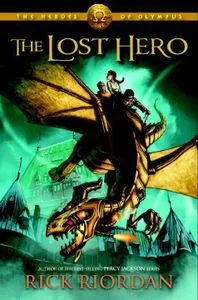 The Heroes of Olympus by Rick Riordan
The Heroes of Olympus by Rick Riordan
This is going to sound super dorky, but the book(s) I loved most this past month were Rick Riordan’s Heroes of Olympus series, which follows after the original Percy Jackson series, and which is set to wrap up with the 5th book in 2014. When I worked with 7th graders, they literally could not get enough of Rick Riordan, and being able to talk Greek demigod with them scored you major cool points. But let’s be honest, I would have loved Percy Jackson even if I didn’t work with teenagers. I finally picked up The Lost Hero, the first in the Heroes of Olympus series, earlier this month just to inject some light fun into my reading schedule because gosh darn it, we all need some fun in our reading schedules. And I had forgotten how fun these books really are. I ended up pushing aside other books to also zoom through The Son of Neptune, and am now in the middle of The Mark of Athena. These books are all heftier than the Percy Jackson ones, but include the same sense of humor and page-turning action, as well as many of the same characters and gods. Except this time, the Roman incarnations of the gods are rounded up along with the Greek, which I find fascinating, and some fantastic new demigods are introduced, all of whom make for a much, much more diverse cast of characters than the original series, which is probably why I actually like this series more. There’s a reason Riordan is one of the top-selling authors on the planet right now. Fun, good stuff.
-Jill Guccini
![]() Lexicon by Max Barry
Lexicon by Max Barry
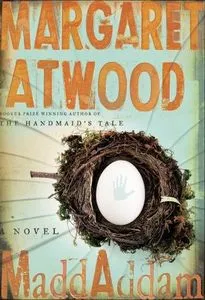 MaddAddam by Margaret Atwood (Nan A Talese, September 3)
MaddAddam by Margaret Atwood (Nan A Talese, September 3)
I wasn’t sure about MaddAddam when I received my review copy of it. I was already a huge Margaret Atwood fan, but I hadn’t yet read Year of the Flood and I had thought Oryx & Crake was just an okay book. But I like Atwood too much not to try, so I got a copy of Year of the Flood and went from that into MaddAddam. It turns out I had nothing at all to worry about. Not only was Year of the Flood a remarkable and exciting book, but it also retrospectively redeemed Oryx & Crake and made me love that novel. AND best of all was that I then dove into MaddAddam and discovered that it’s not only as brilliant as the previous book, but they fit together into one seamless construction, building and enhancing each other until all three books kind of form one towering whole work of fiction. By the time I was done with MaddAddam, which picks up right where the previous book left off (and about which I want to spoil nothing), I was thrilled to discover that it was my favorite book by Margaret Atwood to date. There’s nothing so exciting as an author’s latest book becoming your favorite. It means the amazing work is still happening!
-Peter Damien
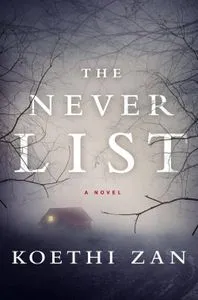 The Never List by Koethi Zan
There are a few problems with this book, but the interesting premise makes up for those flaws. The story focuses on Sarah, a girl that was kept prisoner in a madman’s cellar for three years along with two other girls and her best friend, Jennifer. The fact that the two friends find themselves in the cellar is somewhat surprising, given the lengths that they go to in order to keep safe. They have lists of things that they must never do. One day, though, their list fails them. Sarah finally manages to escape, and she sends help for the other two girls. As far as she knows, Jennifer died some time before. Ten years later, Sarah goes by a new name, lives in New York City, and keeps herself completely shut off from the world, except for visits from her therapist and food deliveries from her doorman. She wouldn’t even be considering leaving the apartment now, except that the man who tortured her is up for parole. What follows is a cross-country journey that thoroughly creeped me out. Discovering the truth of what she went through and seeing her fellow captives again after so much time apart really messes with Sarah’s head, but it may be just what she needed. The problems that I mentioned earlier come toward the end. It’s all over a bit fast for me. But that’s a minor inconvenience. If you’re looking for a good summer thriller, then The Never List will more than scratch your itch.
-Cassandra Neace
The Never List by Koethi Zan
There are a few problems with this book, but the interesting premise makes up for those flaws. The story focuses on Sarah, a girl that was kept prisoner in a madman’s cellar for three years along with two other girls and her best friend, Jennifer. The fact that the two friends find themselves in the cellar is somewhat surprising, given the lengths that they go to in order to keep safe. They have lists of things that they must never do. One day, though, their list fails them. Sarah finally manages to escape, and she sends help for the other two girls. As far as she knows, Jennifer died some time before. Ten years later, Sarah goes by a new name, lives in New York City, and keeps herself completely shut off from the world, except for visits from her therapist and food deliveries from her doorman. She wouldn’t even be considering leaving the apartment now, except that the man who tortured her is up for parole. What follows is a cross-country journey that thoroughly creeped me out. Discovering the truth of what she went through and seeing her fellow captives again after so much time apart really messes with Sarah’s head, but it may be just what she needed. The problems that I mentioned earlier come toward the end. It’s all over a bit fast for me. But that’s a minor inconvenience. If you’re looking for a good summer thriller, then The Never List will more than scratch your itch.
-Cassandra Neace
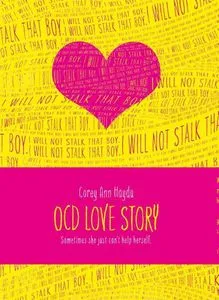 OCD Love Story by Corey Ann Haydu
OCD Love Story by Corey Ann Haydu
I’ve read a lot of mental illness stories, but rarely are the books an actual experience of mental illness. They’re instead a diagnosis and a going-through-those-motions. But this book is different. Bea doesn’t accept her diagnosis because her OCD doesn’t manifest in the ways she’s been led to believe OCD appears. She’s not compulsive or obsessive. She doesn’t have patterns or rituals she clings to. Except that she does — she becomes fixated on people and stalks them. She keeps notebooks and scrapbooks about other people’s lives. She follows them home. She makes their lives her own. Bea also worries about sharp objects and regularly soothes herself through pinching her thigh. It feels at times as a reader you’re playing the role of voyeur right along with Bea….because you are.
There’s just enough romance in here to justifying saying there’s romance in this YA book, but it’s really much more of a love story. Both from the perspective of someone who has OCD and doesn’t conceptualize love on normal terms and from the perspective of Bea loving herself enough to realize she can accept she has a problem. Big bonus points to this book for not having a magical resolution. Impressively realistic with solid writing and skin-crawly as a result.
-Kelly Jensen
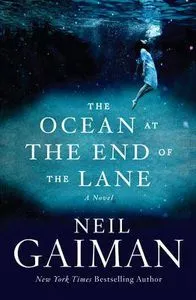
The Ocean At The End Of The Lane by Neil Gaiman
It may be my innate narcissism, but there are countless echoes of my own childhood in Gaiman’s latest. Aside from the part about creatures from another dimension attempting to rip my existence to shreds. And the old lady down the road who can remember the creation of the universe. And the shape-shifting temptress that invades the family home and turns my father against me. But the bits about being seven and reading by the light coming through the crack of the bedroom door, that was me. As was being unaccountably terrified of being left alone. And of using books as both a manual for the real world and an escape from it. This book has done that rare thing and reawoken long slumbering memories of what it feels like to be a child.
-Edd McCracken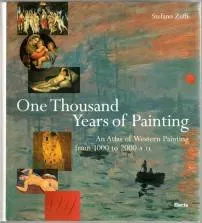 One Thousand Years of Painting by Stefano Zuffi
One Thousand Years of Painting by Stefano Zuffi
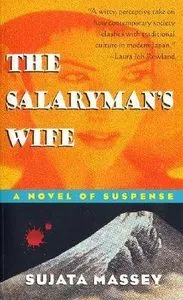 The Salaryman’s Wife by Sujata Massey
The Salaryman’s Wife by Sujata Massey
I love books set in Japan, so when I heard about The Salaryman’s Wife I knew I had to try it. It’s a murder mystery whose main character, Rei Shimura, is a 20-something art historian living in Tokyo. She decides to take a short vacation for New Year’s, which turns into the worst getaway ever when one of the fellow guests at the hotel dies. Although the police believe the salaryman’s wife, Setsuko, committed suicide, Rei’s convinced it was actually murrrrderrr. The Salaryman’s Wife takes the reader from a remote mountain village to Tokyo’s grimiest and ritziest neighborhoods, to peaceful suburbs. It’s not so much a mystery (which was super-easy to figure out) as a coming of age novel. The story is never boring, there’s a romantic subplot with a hot Scotsman, paparazzi, yakuza, energy efficient laptops, floppy disks (it was written in 1997, so slightly dated), octopus corn pizza, discovered treasure, hostess bars, designer dresses, and insanely tiny apartments. Basically everything you could want in a novel! I also loved Massey’s voice and may slightly overidentify with Rei. I’ll definitely be reading the other books in this series.
-Tasha Brandstatter
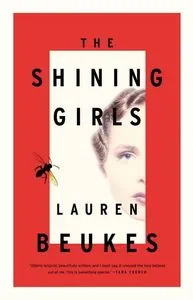 The Shining Girls by Lauren Beukes
The Shining Girls by Lauren Beukes
I read a lot of books at once (three is the current count right now), so when I find a book that can hold my attention for its entire length, I know I’ve got a good thing. Moreover, Beukes made me wish my train ride to work was longer so I could keep reading! She made me want to spend more time on NJ Transit! Insane! Anyways, The Shining Girls tracks a time-travelling serial killer through decades as he chases the one girl who got away. Along the way, you get little peeks into the lives of 1930s abortionists, women working in war-time factories, the floor of a Chicago newspaper, and other quick, vivid vignettes. It’s really a crime novel for someone with an active imagination, but limited attention span. This one will definitely get a reread in a few months.
-Caitlin Van Horn
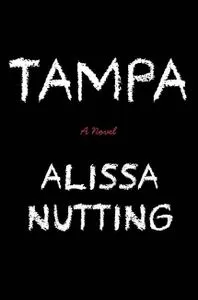 Tampa by Alissa Nutting
Tampa by Alissa Nutting
This debut novel by Alissa Nutting is a mindfuck of the highest order. If you’ve missed a synopsis of this buzzy book, Tampa is the story of a young woman who has become a middle school teacher for the express purpose of seeking out a 14-year-old boy to become her lover. Her particular penchant for prepubescent boys is not something she is ashamed of or that she makes any apologies for. Her every move is about targeting a boy whose parents are inattentive and who would be unlikely to brag to his friends that he’s schtupping the English teacher. Celeste is a smart, calculating predator, a predator whom no one would suspect because she’s pretty, female, and married to a hunky cop.
The language of the book is graphic, to say the very least, and many readers will have a tough time getting past this explicitness to see the larger picture. Taking on such a topic in such a way, Nutting reveals a seedy truth about how we as a society view sexuality, consent, and gender. I finished the novel, and after I shook all the ickiness off, I wondered how the story would’ve changed had the genders been flipped. If this had been a young man in his twenties, targeting 14-year-old girls, the narrative and the story would’ve been completely different. Which in and of itself is a totally different mindfuck. And a compelling one at that.
-Rachel Manwill
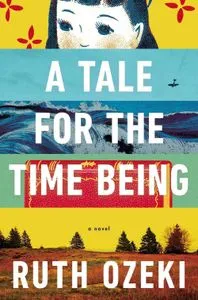 A Tale for the Time Being by Ruth Ozeki
A Tale for the Time Being by Ruth Ozeki
This book is pretty much everything I love combined into one near-perfect book I didn’t want to finish reading. You’ve got your teen angst, in the form of a diary written by Nao Yasutani, a Japanese girl who spent her childhood in America and is ostracized and bullied by her peers when her family moves back to Tokyo after the dot-com bubble bursts. You’ve got your wise elder, in the form of Nao’s great-grandmother, Jiko, the “famous anarchist-feminist-novelist-turned-Buddhist-nun of the Taisho era,” whose story Nao sets out to tell in her diary. You’ve got your formerly-urban novelist, Ruth, who is having trouble adjusting to living and working in rural Canada with her artist husband and trying to write the story of her mother, who has recently died. And finally, you’ve got your WWII history from the Japanese side, as we learn about Nao’s great uncle, who was a philosophy student turned kamikaze pilot. Nao’s diary and some other artifacts wash up on Ruth’s beach in a freezer-bagged Hello Kitty lunch box, presumably after the 2011 tsunami, and Ruth gets lost in the story. As did I, from the very first page, and loved this book until the end, which came too soon. As a bonus, A Tale for the Time Being also contains my latest hypothetical future literary ink: “Life is full of stories. Or maybe life is only stories.” So. Good.
-Jeanette Solomon_____________________________
Sign up for our newsletter to have the best of Book Riot delivered straight to your inbox every two weeks. No spam. We promise. To keep up with Book Riot on a daily basis, follow us on Twitter, like us on Facebook, and subscribe to the Book Riot podcast in iTunes or via RSS. So much bookish goodness–all day, every day.


